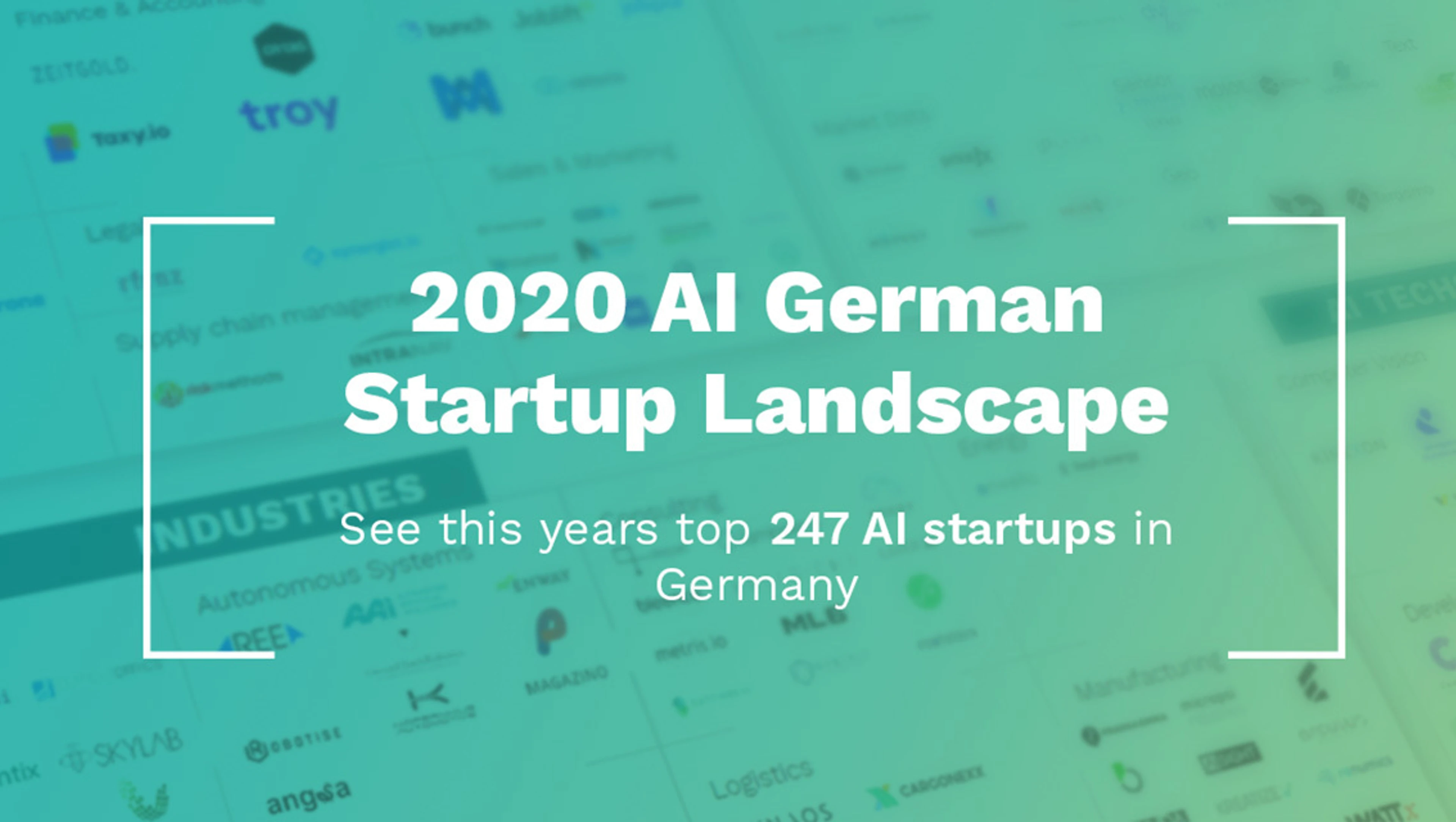
Germany’s leading initiative for Artificial Intelligence (AI), appliedAI, has published its annual Start-up Landscape. The results show that the hype around the technology continues. Most German AI start-ups provide solutions in the business sectors marketing and customer service, only a few for deep tech areas such as IT and cyber security. Particularly the German core industries of manufacturing, transport and mobility, and healthcare show a high rate of start-ups.
German AI start-ups are doing well. In total, there are 247 young companies in Germany that use AI to a significant extent. Compared to the results of last year, this represents an increase of 15%. 54 start-ups have since been added - either because they were newly founded or because they now meet the criteria for being included on the landscape. Only a few start-ups from the previous year - 21 companies in total - are no longer on this year’s map - because they’re not operating any more or because they now have another technology focus.
“The survival rate of the included start-ups is 90%”, says Dr Andreas Liebl, Managing Director of appliedAI. “That’s a great figure and shows that start-ups with a focus on AI are also developing well in Germany. Since start-ups reflect the innovative ability of countries, it’s important to closely follow their development in Germany.”
Start-ups Raise 24% More Capital than in the Previous Year
The start-ups are also making progress in terms of financing. While they were able to secure a total of 1.2 billion euros last year, this time they've already secured 2.2 billion euros. This represents an average increase of 24%. The upscaling is also present in their workforce: 23 AI start-ups already employ more than 100 people, compared to only nine start-ups last year. Celonis is currently the only German start-up that can count on more than 500 employees. "These figures prove that German AI start-ups are increasingly 'maturing' and establishing themselves in the market. They receive more capital, employ more people, and - compared to other start-ups - fail less often", comments Dr Liebl.
Continuing Industry Trends
As in the previous year, most of the AI start-ups can be assigned to the manufacturing, transport and mobility, and healthcare sectors and have a B2B focus. Manufacturing in particular is growing compared to the previous year. The logistics and pharmaceutical industries are at the bottom of the league, while trade and finance are stagnating in the middle of the field. Only a few German AI start-ups deal with deep tech topics such as IT and cyber security. "This could be due to a certain scepticism on the part of German companies, which seem to avoid working with start-ups in strategically sensitive matters and prefer large, established companies in this area," says Dr Liebl. Comparing the figures in the deep-tech sector with the US or Israel, it becomes clear that there's definitely a need to catch up here. Most of the start-ups in this country still belong to the marketing and customer service divisions.
Regional Disparities Remain
About two thirds of all German AI start-ups are still located in Berlin and Munich. Berlin continues to lead the way with 95 start-ups, while Munich is home to 61 companies. Clearly lagging behind in third and fourth place are Hamburg with 14 and Karlsruhe with nine start-ups. All other cities remain in the single-digit range. In terms of financing, Munich continues to offer an ideal ecosystem for start-ups due to its economic power: in this year's survey, start-ups there received an average of 27 million euros. In Berlin, the figure was only 9 million euros.
Together with NVIDIA and Google, as well as eight leading venture capital firms (Digital+ Partners, Earlybird Capital, eCAPITAL, High-Tech Gründerfonds, HV Holtzbrinck Ventures, Lakestar, Speedinvest, and Unternehmertum Venture Capital Partners), more than 1,000 start-ups were examined by the strategists of our appliedAI initiative. The start-up landscape includes start-ups whose business model is based on machine learning and which were founded in Germany after 2010 or have significant business activities in Germany. The start-ups are identified and clustered based on the following criteria: access and availability of data, qualification of the founding team and employees, methodology, scalability of the business model, and overall evaluation of the company.
Find the Start-up Landscape and its results here.





















